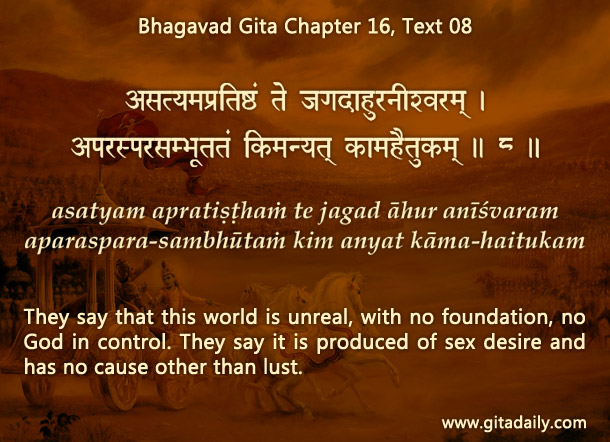Many people nowadays argue for moral relativism: “What is wrong and what is right is relative; if something feels right to me, then you have no right to tell me it is wrong.”
However, we are interdependent beings. To maintain law and order during our social interactions, we need some objective basis for discerning right and wrong. But if everyone has their own standard of right and wrong, then wrongdoing becomes tough to even identify. What can’t be identified as wrong can’t be rectified; why would anyone want to rectify something if they think they can get away with it?
Actually however, no one gets away with it. Even if we aren’t punished for our wrongdoings, we will be punished by our wrongdoings.
Consider the history of obscenity, for example. As moral relativism went mainstream, prurient imagery became increasingly acceptable. But as people started fantasizing with digitally doctored images of people, they became increasingly incapable of connecting with real people and found themselves becoming more lonely, more depressed. The very imagery that stimulates the senses deadens the heart. Consequently, many people have recognized that public depictions of obscenity are harmful for their emotional and relational well-being. Unfortunately, even if they want to stop consuming such imagery, purifying themselves of impure desires is almost impossible in today’s culture. And that is the worst consequence of moral relativism: while claiming to champion moral freedom, it ends up making immoral living easy and moral living difficult.
The Bhagavad-gita predicts such anarchy when it outlines the sequence from godlessness to pleasure-centered relativism (16.08), followed by self-destruction and world-destruction (16.09).
If we wish to avoid moral anarchy, the Gita stands ready to guide us; it presents morality not dogmatically but rationally, as a means to a higher consciousness and a better life.
Think it over:
- Why can’t society function if it accepts moral relativism?
- What is the worst consequence of moral relativism? Explain with an example.
- In a culture of moral relativism, what can the Gita offer us?
***
16.08 They say that this world is unreal, with no foundation, no God in control. They say it is produced of sex desire and has no cause other than lust.
To know more about this verse, please click on the image
Explanation of article:
Podcast:


Nice,please keep it up